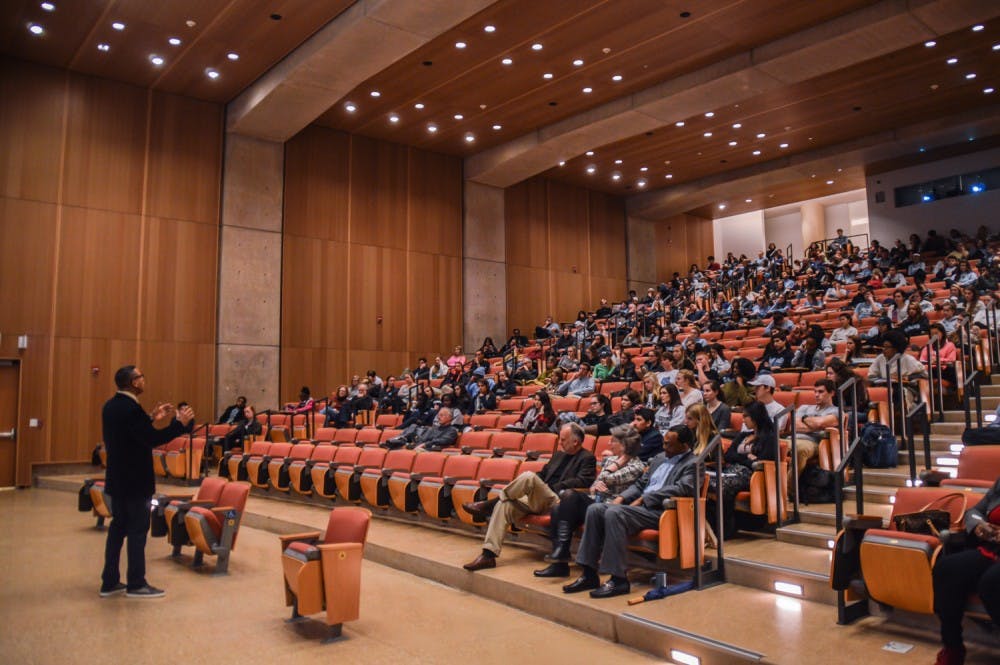Professor Frank Baumgartner invited Fernando Bermudez and LaMonte Armstrong — each of whom was wrongfully sentenced to life in prison for a murder he didn’t commit — to speak on UNC’s campus in a seminar called “Race, Innocence and the End of the Death Penalty” on Monday night.
The event, which had around 200 in attendance, gave Bermudez and Armstrong the opportunity to share their stories, including their fights to appeal guilty charges and prove their innocence.
“I was suddenly faced with the cling and the clang of human cargo in the modern time,” he said.
Baumgartner said he wanted to draw attention to the loss of identity and importance prisoners feel when facing a wrongful conviction, and the inability to voice their innocence once interred.
Theresa Newman, Duke law professor and faculty adviser of the Duke Law Innocence Project, an organization combating wrongful convictions, helped overturn Armstrong’s sentence. She said the DLIP aims to erase the idea the sentence delivered has to be the end of the case.
“We want to examine the way that the cloak of innocence disappears once a person is convicted,” she said. “It is better that 10 guilty persons go free than one innocent person suffer.”
There have been an estimated 2,000 innocent people wrongfully incarcerated in the past 25 years, Bermudez said.
He spent 18 years behind bars after being wrongly identified by multiple witnesses in what he called an illegal interrogation procedure.



